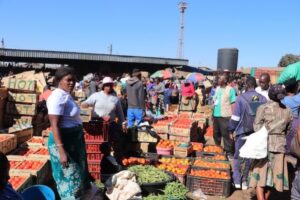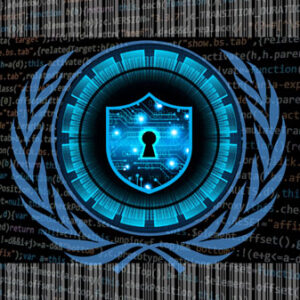
Asia-Pacific, Civil Society, Climate Change, Climate Change Justice, Development & Aid, Economy & Trade, Editors’ Choice, Featured, Food and Agriculture, Human Rights, Labour, Natural Resources, Sustainable Development Goals, TerraViva United Nations, Trade & Investment

Fishworkers are often invisible in discussions about climate change, yet they are at the heart of food security, feeding millions while struggling to feed their own families. Their fight for survival is not just about tradition or livelihood—it’s about justice. Shouldn’t their futures be at the forefront of climate justice debates?

The iconic Chinese fishing nets along the Kerala coast offer a picturesque scene that draws tourists from around the world. However, the fishworkers that have used them for centuries livelihoods are in peril. Credit: Aishwarya Bajpai/IPS
– Every morning before dawn, fishworkers along the shores of Kochi, Kerala, head out to sea, casting their nets in the shadow of the iconic Cheenavala—the Chinese fishing nets that have become a symbol of their community. I witnessed this time-honored tradition, once a reliable means of survival, now a daily gamble, a fight against unpredictable seas and shrinking fish populations.
The COVID-19 pandemic exposed how vulnerable they are; despite being classified as essential workers, they were left without the protections they needed.
And now, as climate change tightens its grip, these fishworkers find themselves on the front lines of a new crisis. Rising sea temperatures, erratic weather, and depleting fish stocks have pushed them further into despair, forcing them to navigate a future as uncertain as the waters they depend on.
Martin, a fishworker from Kochi, Kerala, who smiled and invited me on his boat, has been fishing for over 25 years, reflecting on the mounting hardships. After a while explaining to me about the huge boat and the process of fishing, he said, “In these difficult times, when the government should be supporting us after generations of families have relied on fishing, we are left with nothing and are desperate for help. We purchase our tools and equipment for fishing, yet there’s no assistance from the government for education or healthcare.”

Fishworkers face uncertain future due to climate change and a lack of support from government. Credit: Aishwarya Bajpai/IPS
Martin continued, “Five to six people work on a boat, and money has to be given to the owner as well. We have started to rely on tourism now, where we invite tourists, especially foreigners, onto our boats (private property) to explain our craft and fishing process, for which we sometimes get compensated. Some are generous, and some are not! This used to be the only way of earning in the rough season (Monsoon Fishing Ban), but now, after the climate change, this has become the only source of income for us.”
Kochi, once known as Cochin, was a major global trading hub. It drew merchants from Arabia and China in the 1400s, and later the Portuguese established Cochin as their protectorate, making it the first capital of Portuguese India in 1530.
Today, the city’s rich architectural heritage, along with the iconic Cheenavala (Chinese fishing nets), are major tourist attractions. Fishermen here use these Chinese fishing nets as a traditional method of fishing.
Believed to have been introduced by the Chinese explorer Zheng He from the court of Kublai Khan, these iconic nets became a part of Kochi’s landscape between 1350 and 1450 AD. The technique, which is quite impressive to witness, involves large, shore-based nets that are suspended in the air by bamboo/teakwood supports and lowered into the water to catch fish without the need to venture out to sea. The entire structure is counterbalanced by heavy stones, making it an eco-friendly practice that preserves marine life and vegetation, relying solely on natural materials without harmful gadgets.
Once a vital tool for sustaining the livelihoods of Kochi’s fishworkers, the traditional Cheenavala fishing nets have now become a symbol of a deepening crisis. Climate change, particularly the warming of the Arabian Sea, has drastically reduced fish populations.
Ironically, the government profits from promoting this iconic symbol even as the seafood industry faces closures, with four export-oriented fish processing units shutting down in Kerela in recent months due to the shortage of fish. This stark contrast highlights the growing disconnect between tradition and survival in the face of climate change.

The walls of Kerala are adorned with graffiti advocating for fishworkers and marine biodiversity. In Kochi, a mural reads, “Save the largest fish on Earth,” calling attention to the need for conservation. Credit: Aishwarya Bajpai/IPS
Despite the Chinese fishing nets being a major tourist attraction, the government has shown little or no interest in preserving them. The process started in 2014 when a Chinese delegation, led by Hao Jia, a senior official of the Chinese embassy in India, met with Kochi’s then-mayor, Tony Chammany, to help renovate the nets and proposed constructing a pavement along Fort Kochi beach.
KJ Sohan, former mayor of Kochi and president of the Chinese Fishing Net Owners’ Association, expressed his support for the Chinese initiative to preserve the traditional fishing nets. He emphasized that such large nets, rooted in ancient techniques, are unique to this region. However, he also highlighted the significant governmental neglect of these nets. Insurance companies refuse to cover them, and they need to be replaced twice a year, which incurs substantial costs.
The Tourism Department later instructed the Kerala Industrial and Technology Consultancy Organisation (KITCO) to refurbish 11 of these nets and allotted 2.4 crore rupees (24 million), along with teakwood and Malabar for the repairs.
The authorities had initially refused to release funds directly, requiring the owners to start the refurbishment first, with promises of staggered payments. It has recently come to light that the boat owners, many of whom took out high-interest loans to begin the renovation, are now in financial distress as they have yet to receive the promised government funds, despite completing the work over a year ago.

A Chinese fishing net on the coast of Kochi, Kerala (India). Credit: Aishwarya Bajpai/IPS
Many took out loans and installed new coconut timber stumps, but even after nearly finishing the work, they are still waiting for the funds. This has left the fishworkers in debt while authorities cite GST-related issues for the delay. The owners argue they are exempt from the tax.
Fishworkers, both men and women, are often invisible in discussions about climate change, yet they are at the heart of food security, feeding millions while struggling to feed their own families. Their fight for survival is not just about tradition or livelihood—it’s about justice. If the government continues to turn a blind eye, Kerala’s fishworkers may have no choice but to seek support elsewhere, from international bodies, non-governmental organizations, or global climate finance mechanisms. Their struggles must be recognized, and their voices amplified in the push for climate justice.
Kerala’s fishworkers are not just battling the seas—they are fighting for their future. Without immediate action and meaningful support, we risk losing not only their livelihoods but an entire way of life. If the government cannot rise to the occasion, the world must step in to ensure that these communities do not slip into obscurity.
IPS UN Bureau Report













